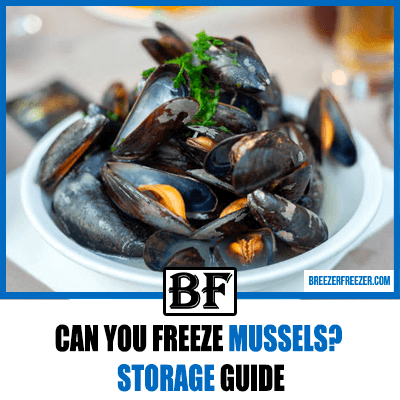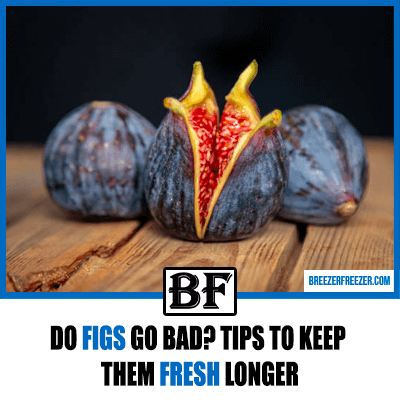Can you freeze cockles?
If you are wary of eating cockles and mussels and have been put off by the chewy texture, then it is about time you turned to cockles. The cockle is a bivalve and lives in the muddy sands surrounded by cold salt water, but they are different from other marine mollusks. They are less briney and more succulent. But can they be stored long-term?
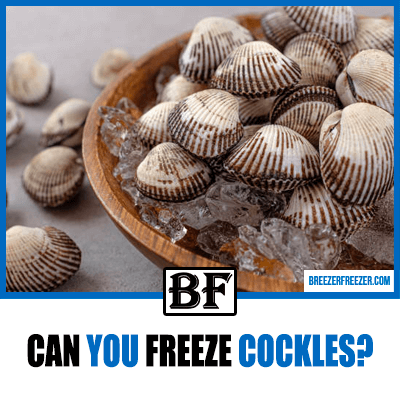
Did you know fishing boats head into shallow water and spin in circles to catch cockles? The wash of the propeller removes the sand revealing the cockles. When the tide ebbs, the boat is stranded, and the fishermen get to work collecting the cockles from the sand.
Cockles may not be your idea of a great meal, but they are super popular and are becoming more popular in the US, where they fall under the heading of clams and scallops.
This article dives deep into how you can preserve this juicy little morsel so you can enjoy them out of season. We answer many frequently asked questions providing factual information to improve your culinary knowledge.
Let’s dive in.
Do cockles expire?
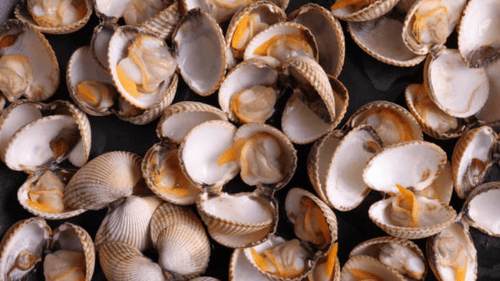
Yes, they do. But you may be surprised to read that they are not as delicate as you might have thought. These tiny shellfish live in a pretty inhospitable environment buried in the sand, where they filter the ocean’s water.
But there are some things you should know before you dive into cockles.
The cockle lives in muddy sand, such as the sand you may find in an estuary. Consequently, the shells are full of fine sand and must be scrubbed clean. Cockles need to be cleaned, which may take longer than you expect.
To clean cockles, you will need a bowl of fresh water, place the cockles in the water and rinse, swirl the cockles around for two mins, drain the water and repent four or five times.
Break or a nail brush and get scrubbing, the cockles should already look cleaner, but they can look a whole lot better after a good scrub.
Now, place the cockles in clean water and add salt. You want the cockles to purge the sand inside the shell. After two hours, this process is complete.
Palace the cockles in a container ready for the fridge. You can place ice over the cockles, but place the ice in a bag. You don’t want the cockles sitting in ice melt. It will kill them.
Cover the cockles with a damp burlap of damp newspaper. Srtoiopirnthe cockles this way, they will last for seven days in a cold fridge.
Do cockles have to be covered?
Cockles are almost always covered and will not survive if they are not, so cover the cockles to keep them as fresh as possible.
If you have open cockles, they will typically close as soon as touched, but make an allowance with them to sit in a cold fridge. They may react slower.
If you have an open cockle, it is dead and should be separated and discarded.
Cooked cockles should be kept in an airtight container in the fridge. They will only last for two days but keep them covered.
Can you put warm cockles in the fridge?
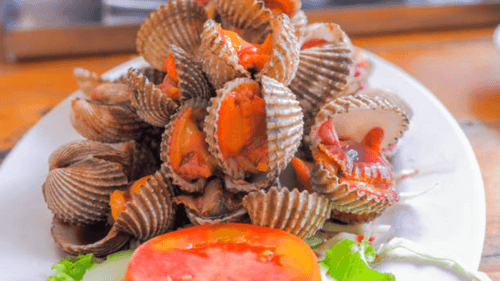
No. Let the cockles cool to room temperature before placing them in the fridge. Once you introduce heat into the fridge, the interior temperature could rise. For food safety reasons, warm food should not be placed in the fridge.
Your fridge temperature hovers just below 4℉. Temperatures above this are considered to be the food danger zone. The food danger zone is a temperature range from 40 to 140℉.
In this temperature range, bacterial growth accelerates. After just two hours, the bacteria will have reached significant levels, potentially making the fish or any other food stirred in the fridge inedible due to its risk of causing food poisoning.
Only place foods that have cooled to room temperature in the fridge.
How long can cockles sit out?
Fresh uncooked cockles should not sit out at room temperature, as they will die quickly, keep fresh cockles refrigerated and on ice. Ensure that the melted ice water does not come into contact with the cockles.
Cooked cockles should not sit out any longer than two hours. They are classified as perishable food, and according to the USDA, they can only sit out for two hours.
At room temperature, the bacteria growth in the cockles will accelerate exponentially, making the cockles potentially dangerous to eat. If you eat cockles that have been sitting out for two hours, you risk contracting food poisoning.
If you have cooked cockles try to eat them in one sitting, leftovers should be placed in an airtight container in the fridge once they are cool.
Do unopened cockles go bad?
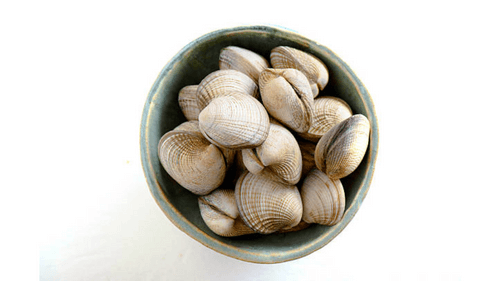
Canned cockles and jars of cockles have a long shelf life. A jar of cockles stored in the fridge will last for two years and may be longer. But once open, the shelf life will start ticking down, and they will spoil farts, so it’s best to eat them.
If you have canned cockles, you can expect them to still be good in five years, but you should be aware of a few things.
If the canned cockles exhibit signs of can swelling, the cockles should be discarded. The swelling is from gas that bacteria are producing.
If the can is rusty, it can’t be relied upon, so discard the cockles. If the can show signs of seepage, throw the can out with the garbage.
If you have pickled cockles, they will last for around three months in the fridge.
How long do cockles last in the fridge?
If you have prepared your cockles with cleaning and purging, store them on ice and protect them from ice melting. Covered with burlap or a damp newspaper, they will last approximately seven days.
Cooked cockles stored in an airtight container will last for two days. The shelf-life of these succulent morsels is short.
Canned cockles, when open, will last for four days in the fridge. Jars of cockles are commonly pickled, so they will last a week or more once the jar is open.
Do frozen cockles go bad?
In theory, cockles should last indefinitely in the freezer. Still, these mollusks are delicate and will deteriorate after three months of freezing, so it’s best to eat them within 12 weeks of frozen cockles.
Freezing cockles
The life of your cockles in the freezer will depend on how fresh they were when they were purchased and if they have been prepared.
- Cleaning the cockles is essential before freezing. They will freeze better, and it is not a job you can do after the event because the cockles will die.
- Cockles not prepared before freezing may take on weird flavors from the sand and silt within the shell.
- Scrub and purge, as written earlier in this article.
- If you don’t know, handling cockles and other mollusks needs a diligent eye, so select only the best cockles for freezing.
- If cockles have cracked shells, discard them. If they have debris attached to the shell, don’t freeze it. If there are any signs of fungus or algae growth, it’s not edible.
- Cockles that do not close when touched, even when cold, should be discarded. They are dead.
- Boil a pot of water. The cockles are ready for the pot. When you reach a rolling boil, add the cockles to the water, and turn off the heat. A couple of good pinches of salt will help with the flavor.
- After thirty seconds, the cockles are cooked enough. The cockles will not open, so remove them from the water, drain them, and place them into a bowl of ice water to stop the cooking process.
- Shuck the cockles using a spoon or a blunt knife. Just pry the shell open and scoop out the meat.
- Place the cockles’ meat into a Ziploc-style bag. When the bag is full, or you have shucked all of your cockles, squeeze as much air from the bag as possible and seal it tightly.
- Mark the bag with the freezing and expected expiry dates, which will be three months.
- Place in the freezer.
How do you thaw cockles?
You need to be careful when thawing cockles. If you leave them in the fridge overnight, they could spoil.
The best way to thaw cockles is to place the bag of frozen cockles in a colander and run fresh water over the cockles. They will thaw in minutes using this thawing method and can be added straight to the dish you prepare.
Final thoughts
If you are not into mussels or shellfish, give cockles a chance. They are less salty but sweet and succulent. Cockles can last several days in the fridge if stored properly and fresh when purchased.
Cockles will freeze for three months and still have a great texture and flavor, but after three months, this mollusk will deteriorate to a point where the texture and flavor are no longer appetizing.
If you love to hit the beach, you may see these mollusks lying just under the sand, covered in an inch or two of seawater.
Forages need to know never to harvest cockles that have been sitting out in the sun for a couple of hours. If they are not dead, the will be full of harmful bacteria.



